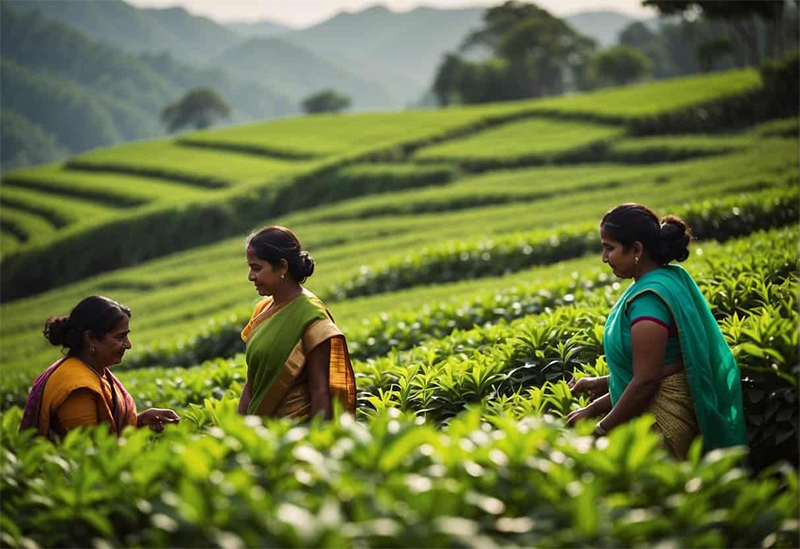Tea Trails Discovering Plantation Culture in India and Sri Lanka
Reflecting centuries of influence and adaptation, tea estates in India and Sri Lanka offer a remarkable junction of history, culture, and agriculture. Originally established during the colonial era, these farms have developed into important centers of commerce and culture highlighting the skill required in tea making. Visitors discovering these verdant surroundings come across not just the complex techniques underlying their preferred beers but also the rich customs and history of the local populations sustaining them. This special fusion of history and workmanship inspires a better awareness of the importance of tea in forming local identities and worldwide respect.
The History of Tea Plantations in India and Sri Lanka
Deep historical roots abound in tea growing in India and Sri Lanka, starting in the 19th century when the British colonial powers saw these areas’ tea-growing potential. The arrival of Chinese and Assamese tea plants changed the terrain and resulted in large-scale cultivation. As labor from many backgrounds was brought in to cultivate the fields, these estates helped to shape the social fabric in addition to supporting the colonies’ economies. The tea business changed with time, impacting regional customs and producing a distinctive plantation culture still today.
Exploring Tea Plantations: From Field to Cup
Tea plantation visitors can see the complex trip tea takes from its growing to the finished beverage. One can see expert hands-picking delicate leaves, a custom ingrained in history, as one walks across verdant meadows. The processing facilities expose the painstaking stages required—withering, rolling, fermenting—each vital for creating distinct flavors. Tastings are common in guided tours so that visitors may value the unique profiles of several teas. Along with stressing the workmanship behind every cup, this comprehensive experience helps one to appreciate the cultural value of tea in India and Sri Lanka.
Immersing in Plantation Culture: Visiting Tea Estates and Interacting with Workers
Seeing plantation culture personally provides a special window into the daily life of tea estate employees. Engaging in meaningful dialogues with residents, visitors can learn about their customs, difficulties, and rich legacy of the community Many estates give visitors chances to engage in traditional cookery courses or tea picking, therefore strengthening their bond to the ground and its people. Often enhancing the experience are cultural events and storytelling sessions that highlight the rich legacy and practices connected to tea manufacture. This connection improves knowledge and fosters environmentally friendly tourism that helps the nearby towns.
Preserving and Promoting Tea Plantation Heritage: Sustainability and Tourism Initiatives
Efforts to protect the rich legacy of tea farms are becoming entwined with environmental projects and tourism campaigns. Many estates are using environmentally friendly agricultural methods that reduce influence on the surroundings while preserving high quality of output. Working with nearby towns guarantees that guests boost the local economy and assist to promote responsible travel. Through stressing the value of biodiversity and cultural preservation, educational initiatives help visitors to develop a feeling of responsibility. These projects not only preserve the special tradition of tea farming but also improve the whole visitor experience by combining sustainable techniques with real-life events, so harmonizing legacy with modern tourism.
Traveling around India’s and Sri Lanka’s tea farms illustrates not just the complex methods used in tea manufacture but also the close ties among the land, people, and their shared past. These estates not only honor their cultural legacy but also enhance the experiences of guests by adopting sustainable methods and supporting meaningful connections, so building a vivid tapestry honoring both history and modernism. This harmonic mix guarantees that the legacy of tea farming will always flourish and provides future generations with a window into the ongoing relevance of this dear drink.
Photo Attribution:
Featured and 1st Image by https://seas.aero/tea-trails-of-sri-lanka-exploring-the-lush-plantation-landscapes/
2nd Image by https://unsplash.com/photos/clear-tea-cup-on-brown-surface-mRaNok_Ld6s






